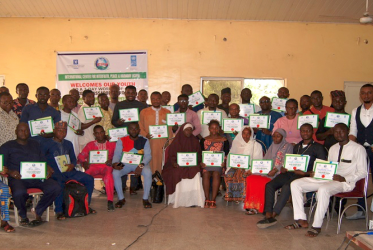Displaying 1 - 19 of 19
Fr Alexi - a peacemaker in Syria
21 December 2018
Romani people seek “lives of decency, dignity, and justice”
27 September 2018
Walking together against hatred and violence
26 February 2018
In Nigeria, WCC workshops focus on human rights
04 December 2017
WCC urges responsibility for and support to the refugees in Europe
04 September 2015









